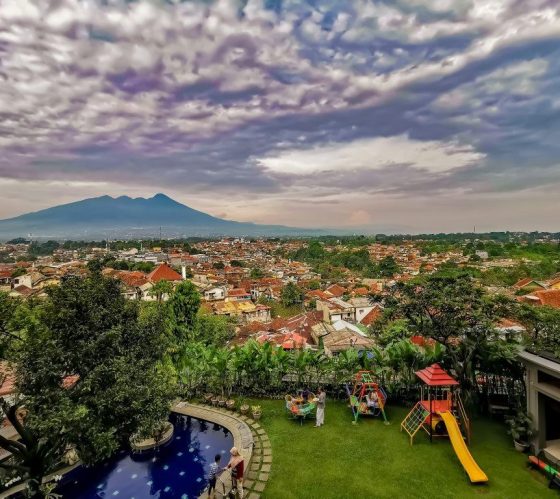A new platform launched by the Government of Japan, in partnership with the UN Framework Convention on Climate Change (UNFCCC), aims to support the sustainable and resilient recovery from COVID-19.
The Platform for Redesign 2020 is an initiative to enhance international solidarity in addressing two crises at the same time: climate change and the COVID-19 pandemic.
Led by the Ministry of the Environment Japan, supported by the UNFCCC, and managed by the Institute for Global Environmental Strategies (IGES), Redesign2020 Platform was launched on 3 September through a high level virtual event that gathered 50+ ministers across the world.
The initiative introduces the concept of “redesign” as complementary to response and recovery efforts, defining it as, “paradigm shifts and measures in the long term – more than a few years to a few decades – toward redesigning current socioeconomic and sociocultural systems to be sustainable and resilient.“
At the launch, UN Secretary General Antonio Guiterres highlighted that the decisions being taken now will have consequences for decades and commended the Net Zero Carbon Cities initiative of the Ministry of Environment of Japan.
ICLEI First Vice-President Cathy Oke said by video message at the launch, “We need to pursue sustainability more than ever and we need to do this through multilevel cooperation, as enshrined in the Paris Agreement, Sustainable Development Goals and the New Urban Agenda. The Japanese Zero Carbon Cities initiative, as a collaborative effort of local, prefectural and national governments, is an exemplary model on multilevel and collaborative action. I sincerely hope Japanese Zero Carbon Cities could pave the way to increase the Japanese national climate ambition and such a unique leadership of Japan could inspire other nations towards COP26 in 2021.”
The Redesign2020 Online Platform aims to capture information of measures taken by national governments on response, recovery, redesign with a focus on Mitigation, Adaptation, Cross-cutting, Other Environmental, International Cooperation. As of 3 September, more than 60+ countries uploaded initiatives. ICLEI leaders, Hayashi Fukimo, Mayor of Yokohama on behalf of ICLEI Japan, and Kobie Brand, Regional Director of ICLEI Africa also joined the event with live and prerecorded message to convey ICLEI´s support to the Redesign2020 initiative.”
The COVID-19 pandemic is placing huge strain on African communities, our governments, our healthcare systems and our economies,” said Brand. “Especially during this time, many of our cities are grappling with immense health emergencies added to existing cumulative and unprecedented sustainability challenges. These challenging and uncertain times are forcing us to discover and implement new and innovative ways of working, as good practices emerge and signify a new normal. Building resilience of Africa through multilevel collaboration will therefore be even more critical now.”
“Our efforts aim for a multilevel and multi stakeholder collaboration with a focus on renewable energy, smart cities and disaster reduction,” said Mayor Hayashi Fukimo. “Yokohama is one of the pioneering cities that committed to Net Zero carbon by 2050 and is happy to have the support of ICLEI in Japan.”
“Japan has demonstrated remarkable leadership in the Net Zero Cities and Prefectures, in the implementation of Aichi Biodiversity Targets and Nagoya Action Plan for Subnationals, the implementation of SDGs at the national and local level as well as support to the New Urban Agenda and we hope Redesign2020 can introduce a new global momentum,” said Yunus Arikan, Director of Global Advocacy for ICLEI.
Updates to the Japanese Net Zero Carbon Cities initiative, which was promoted at the UN Climate Conference in Madrid (Cop25) in December 2019 through a side event of ICLEI and MOEJ, were presented by Minister Koizumi at ICLEI´s Race-To-Zero Dialogue on 29 July 2020. ICLEI will be collaborating with MOEJ to expand localization of the concept of “Redesign2020” starting from Daring Cities Global Virtual Forum in October and Local Climate Solutions for Africa in November 2020.
According to Arikan, the concept of redesign is critical to solve many of the crises we are facing globally. He said, “COVID-19 started as a health issue led by Ministers of Health, then turned into disaster management led by security and disaster experts, then evolved into a financial issue with recovery packages. With the term ‘redesign,’ for the first time, climate and environment ministers are creating their own space in these global efforts. ICLEI proposes three building blocks and one crosscutting element for redesign policies. First, ambitious NDCs that address the climate emergency. Second, a strong deal for nature that aims to stop biodiversity loss and reverse land degradation. Third, sustainable integrated urban and territorial development. Finally, across all of these, we must ensure that these build blocks are integrated into SDGs with effective engagement of local and regional governments.”



